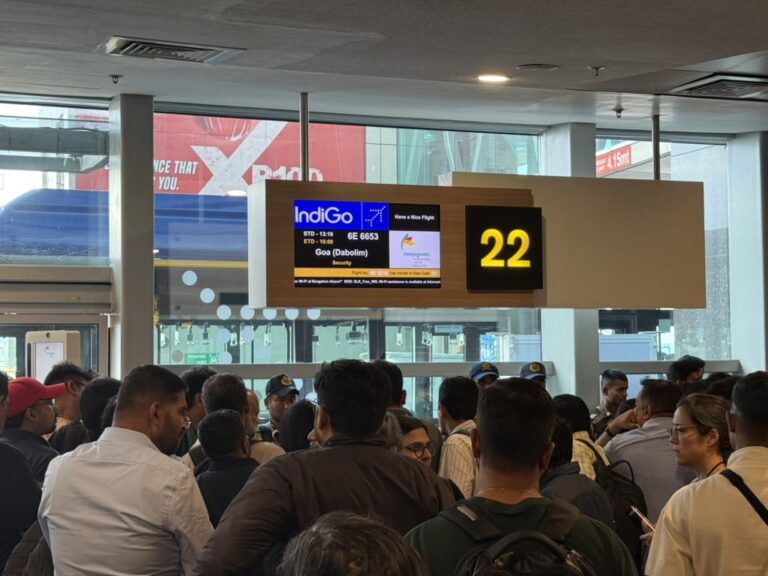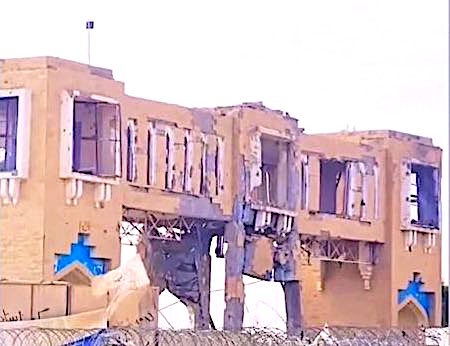
Supreme Court of India
By Dr Adish C. Aggarwala*
A Constitution Bench of the Supreme Court of India, headed by the Chief Justice of India delivered a judgment on February 15, 2024, invalidating the Government of India’s Electoral Bonds Scheme. In its judgment, it also ordered that the State Bank of India shall hand over details of the contributions received by political parties by March 6, 2024, to the Election Commission of India and further directed the Election Commission of India to make public the details of the same.
I totally welcome the decision passed by the Hon’ble 5-Judges Bench of the Supreme Court, as invalidating the said Scheme was much required, due to the reasons as have been enumerated in the judgment, except the direction “e. The ECI shall publish the information shared by the SBI on its official website within one week of the receipt of the information, that is, by 13 March 2024” passed in the judgment.
The Supreme Court of India gives legal and constitutional direction for the nation’s journey and paves the way for the bright future of our country. As a leader of the Supreme Court Bar Association, it is also my duty to bring to the notice of the Court whenever there arises an opportunity to improve the Constitutional performance and supervisory jurisprudence on the part of the Supreme Court.
I am happy that citizens of India have come to know that the political parties have the got the specific amount of donation, due to this case. It is in this earnest and bonafide belief and trust that I beseech the Chief Justice of India to initiate suo motu review proceedings, to take a relook into the 5-Judges Constitution Bench decision delivered on February 15, 2024, in Writ Petition (C) No. 880 of 2017 Association for Democratic Reforms & Anr, (and other connected matters) on limited direction namely: “e. The ECI shall publish the information shared by the SBI on its official website within one week of the receipt of the information, that is, by 13 March 2024.”
(Click the links to see the electoral bonds disclosed by the Election Commission of India today as per the Supreme Court order:
- Details of Electoral Bonds submitted by SBI Part- I
- Details of Electoral Bonds submitted by SBI Part- II)
Also read: “President should withhold enforcement of SC verdict in EBS case”
As per the Supreme Court’s HANDBOOK ON PRACTICE AND PROCEDURE AND OFFICE PROCEDURE, there are only three means and purposes to constitute a Constitution Bench. They are as follows:
I. Every case involving a substantial question of law as to the interpretation of the Constitution under Article 145(3) or any Reference made under Article 143 of the Constitution shall be heard by a Bench consisting of not less than five Judges.
II. Every petition calling in question the election of the President and Vice-President under Article 71 of the Constitution read with Part III of the Presidential and Vice-Presidential Elections Act, 1952, shall be posted before a Bench of five Judges under Order XLVI of the Rules.
III. The Chief Justice may, from time to time, constitute a Bench consisting of five or more Judges for the purpose of hearing any other cause, appeal or matter.
The Constitution is very clear as to when and how a matter is to be referred to the Constitution Bench under Article 145(3), which is as follows:
_“Article 145 (3):- The minimum number of Judges who are to sit for the purpose of deciding any case involving a substantial question of law as to the interpretation of this Constitution or for the purpose of hearing any reference under Article 143 shall be five:
_Provided that, where the Court hearing an appeal under any of the provisions of this Chapter other than article 132 consists of less than five Judges and in the course of the hearing of the appeal the Court is satisfied that the appeal involves a substantial question of law as to the interpretation of this Constitution the determination of which is necessary for the disposal of the appeal, such Court shall refer the question for opinion to a Court constituted as required by this clause for the purpose of deciding any case involving such a question and shall on receipt of the opinion dispose of the appeal in conformity with such opinion._
Whenever a Constitution Bench is constituted, it is for the specific and limited purpose of addressing a question of law, and it shall be done under the circumstances mentioned above. As per Article 145 (3) of the Constitution, when a Bench of the Hon’ble Supreme Court, is satisfied that the case involves a substantial question of law, as to the interpretation of the Constitution, then the said question of law shall be referred to the Constitution Bench.
On October 16, 2023, a Bench of the Hon’ble Supreme Court of India in Writ Petition (C) No. 880 of 2017 Association for Democratic Reforms & Anr. (& other connected matters) passed the following order:-
1. “On mentioning, the matter is taken on Board.
2. In view of the importance of the issue which is raised and having due regard to the provisions of Article 145(3) of the Constitution, we are of the considered view that the batch of petitions be listed before a Bench of at least five-Judges.
3. The Registry shall take instructions on the administrative side.
4. The date of listing the matters on 31 October 2023 shall be maintained.”
The above order is to be treated as a ‘reference order’. However, most respectfully, I submit that it does not outline the ‘questions of law’ to be decided by the Constitution Bench.
As already explained as per Article 145(3) of the Indian Constitution there should be at least five judges to hear cases that involve “a substantial question of law as to the interpretation” of the Constitution, or any reference under Article 143, which deals with the power of the President of India to consult the Supreme Court of India. But in the Writ Petition (C) No. 880 of 2017 (and other connected matters), while referring the case to the Constitution Bench, the substantial questions of law as to the interpretation of the Constitution were not framed in the reference order.
In this background, I humbly submit that a specific question of law _“Whether amount of donation & identity of the corporate donor, who have contributed according to the legal enactments, as are in force and believing that their identity and donation will not be disclosed, should be disclosed if Electoral Bond Scheme, is held ultra vires to the provisions of the Constitution of India”_ should have been framed either by the Division Bench or the Constitution Bench, before hearing of the Constitution Bench along with other questions of law, and further all concerned political parties and the donors should have been impleaded as respondents enabling them to participate in the proceedings before the Constitution Bench. This would have ensured that due process of natural justice was followed before an order was passed for disclosure of the identity of such a donor. That exercise of framing the above question of law or similar issue was not done either by the Referral Bench or by the Constitution Bench.
The following two questions of law were framed by the Constitution Bench while delivering the Judgment:
a. Whether unlimited corporate funding to political parties, as envisaged by the amendment to Section 182(1) of the Companies Act infringes the principle of free and fair elections and violates Article 14 of the Constitution; and
b. Whether the non-disclosure of information on voluntary contributions to political parties under the Electoral Bond Scheme and the amendments to Section 29C of the RPA, Section 182(3) of the Companies Act and Section 13A(b) of the IT Act are violative of the right to information of citizens under Article 19(1)(a) of the Constitution.
The issue raised by me does not get covered in the aforesaid two issues framed and decided by the Hon’ble Constitutional Bench and thus, there is a need to review the Judgment on the points raised by me.
I humbly submit that at the time of donation, the corporate donor was fully aware that after the donation, its identity, amount of donation and particulars of donee political party, would not be made public and would be kept confidential. This provision of secrecy was made in the relevant Scheme with the purpose that the donor will be not subject to victimization by any other political party to whom the donor has not donated under the Scheme.
I humbly submit that the order of the Constitution Bench dated February 15, 2024, directing abrupt disclosures of the identity of corporate donors, the amount of donation and donee political party will have an adverse impact on the said corporate donor.
Revealing the names of corporate donors and the amount of donations would render the corporates vulnerable to victimization. The possibility of them being singled out by those parties, that had received less or no contribution from them, and further harassment, cannot be ruled out if the names of corporate donors and their quantum of donation to various parties are revealed. This will be reneging on the promise given to them while accepting their voluntary donation.
India is a developing country. Prime Minister Mr Narendra Modi has developed confidence amongst the foreign business houses that there is a stable government in India and there is a suitable investment opportunity for foreigners in India. Adding to this, it is known worldwide that there is an independent, fair and bold judiciary in India. Most of the corporate donors may be foreign entities. The direction of the Constitution Bench would discourage and dissuade foreign corporate entities from investing in India.
I, therefore humbly request the Chief Justice of India to subject the February 15, 2024 verdict in Writ Petition (C) No. 880 of 2017 Association for Democratic Reforms & Anr, (and other connected matters) to suo motu review of its direction: “e. The ECI shall publish the information shared by the SBI on its official website within one week of the receipt of the information, that is, by 13 March 2024” made in the judgment.”
I further humbly clarify that I am making this prayer for suo motu review of the judgment dated 15.02.2024 not on behalf of the Supreme Court Bar Association but it is in my individual capacity being the Chairman of All India Bar Association, President of Supreme Court Bar Association and former Vice-Chairman of Bar Council of India.
*Excerpts from a letter addressed to the Chief Justice of India DY Chandrachud by senior advocate Dr. Adish C. Aggarwala today, who is the Chairman of All India Bar Association, President of Supreme Court Bar Association and Ex. Vice-Chairman, Bar Council of India. The published article is his personal views.
– global bihari bureau






